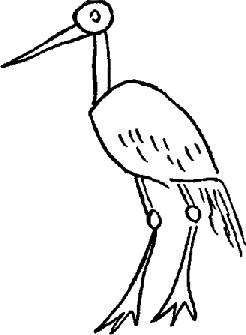“To break the heart of this ox,” my Manager narrated, “I had him thrown in the bullocks’ paddock, with his four legs tied hard together, and a rein round his muzzle, and even then, as he was lying dumb on the ground, long scalding jets of steam stood out from his nose and terrible snorts and sighs came from his throat. I was looking forward to seeing him under the yoke for many years to come. I went to bed in my tent and I kept on dreaming of this black ox. I was woken up by a big row, the dogs barking and the Natives shouting and yelling down by the paddock. Two herdboys came into my tent all trembling and told me that they believed a lion had got in amongst the oxen. We ran down to the place and took lamps with us, and I myself brought my rifle. As we came near to the paddock the noise died down a little. In the light of the lamps I saw a speckled thing making off. A leopard had been at the tied-up ox, and had eaten the right hind-leg off him. We would never come to see him in the yoke now.
“Then,” said my Manager, “I took my rifle and shot the ox.”
The Fireflies
Here in the highlands, when the long rains are over, and in the first week of June nights begin to be cold, we get the fireflies in the woods.
On an evening you will see two or three of them, adventurous lonely stars floating in the clear air, rising and lowering, as if upon waves, or as if curtseying. To that rhythm of their flight they lighten and put out their diminutive lamps.
You may catch the insect and make it shine upon the palm of your hand, giving out a strange light, a mysterious message, it turns the flesh pale green in a small circle round it. The next night there are hundreds and hundreds in the woods.
For some reason they keep within a certain height, four or five feet, above the ground. It is impossible then not to imagine that a whole crowd of children of six or seven years, are running through the dark forest carrying candles, little sticks dipped in a magic fire, joyously jumping up and down, and gambolling as they run, and swinging their small pale torches merrily. The woods are filled with a wild frolicsome life, and it is all perfectly silent.
The Roads of Life
When I was a child I was shown a picture,—a kind of moving picture inasmuch as it was created before your eyes and while the artist was telling the story of it. This story was told, every time, in the same words.
In a little round house with a round window and a little triangular garden in front there lived a man.

Not far from the house there was a pond with a lot of fish in it.

One night the man was woken up by a terrible noise, and set out in the dark to find the cause of it. He took the road to the pond. Here the story-teller began to draw, as upon a map of the movements of an army, a plan of the roads taken by the man.
He first ran to the South. Here he stumbled over a big stone in the middle of the road, and a little farther he fell into a ditch, got up, fell into a ditch, got up, fell into a third ditch and got out of that.

Then he saw that he had been mistaken, and ran back to the North. But here again the noise seemed to him to come from the South, and he again ran back there.
He first stumbled over a big stone in the middle of the road, then a little later he fell into a ditch, got up, fell into another ditch, got up, fell into a third ditch, and got out of that.

He now distinctly hear that the noise came from the end of the pond. He rushed to the place, and say that a big leakage had been made in the dam, and the water was running out with all the fish in it. He set to work and stopped the hole, and only when this had been done did he go back to bed.

When now the next morning the man looked out of his little round window,—thus the tale was finished, as dramatically as possible,—what did he see?—
A stork!

I am glad that I have been told this story and I shall remember it in the hour of need. The man in the story was cruelly deceived, and had obstacles put in his way. He must have thought: “What ups and downs! What a run of bad luck!” He must have wondered what was the idea of all his trials, he could not know that it was a stork. But through them all he kept his purpose in view, nothing made him turn round and go home, he finished his course, he kept his faith. That man had his reward. In the morning he saw the stork. He must have laughed out loud then.
The tight place, the dark pit in which I am now lying, of what bird is it the talon? When the design of my life is complete, shall I, shall other people see a stork?
Infandum, Regina, jubes renovare dolarem. Troy in flames, seven years of exile, thirteen good ships lost. What is to come out of it? “Unsurpassed elegance, majestic stateliness, and sweet tenderness.”
Esa’s Story
At the time of the war I had a Cook named Esa, an old man of much sense and a gentle disposition. One day when I was in Mackinnon’s grocery shop in Nairobi, buying tea and spices, a small lady with a sharp face came up to me and remarked that she knew Esa was in my service; I said that it was so. “But he has been with me before,” said the lady, “and I want him back.” I said that I was sorry about that, as she would not get him. “Oh, I do not know about that,” she said. “My husband is a Government Official. Will you please tell Esa when you go home, that I want him back, and that if he does not come he will be taken for the Carrier Corps? I understand,” she added, “that you have got enough servants without Esa.”
I did not tell Esa of these happenings straight away, only the next evening did I remember about them, and told him that I had met his old mistress, and of what she had said to me. To my surprise Esa was immediately beside himself with fear and despair. “Oh, why did you not tell me at once, Memsahib!” said he, “the lady will do what she has told you, and I must leave you tonight.”
“That is all nonsense,” I said. “I do not think that they can take you like that.”
“God help me,” said Esa, “I am afraid it may be too late already.”
“But what am I to do for a Cook, Esa?” I asked him.
“Well,” said Esa, “you will not have me for a Cook either when I am with the Carrier Corps, nor when I am lying dead, as I shall surely then be very soon.”
So deep was the fear of the Carrier Corps in the people in those days that Esa would not listen to anything I had to say. He asked me for the loan of a hurricane-lamp, and set off in the night to Nairobi, with what belongings he had in the world tied up in a cloth.
Esa was away from the farm for nearly a year. During that time I saw him a couple of times in Nairobi and once I passed him on the Nairobi road. He was growing old and thin, and drawn in the face, in the course of this year, his dark round head was going grey on the top. In the town he would not stop to speak to me, but when we met on the flat road and I pulled up my car, he put down the chicken-coop which he was carrying on his head, and settled down to a talk.
He had, as before, a gentle manner, but all the same he was changed, and it was now difficult to get into contact with him; he remained, all through our conversation, absent-minded, as if at a distance. He had been ill-used by fate, and deadly frightened, and had had to draw upon resources unknown to me, and through these experiences he had become chastened or clarified. It was like talking with an old acquaintance who has entered upon his novitiate in a monastery.